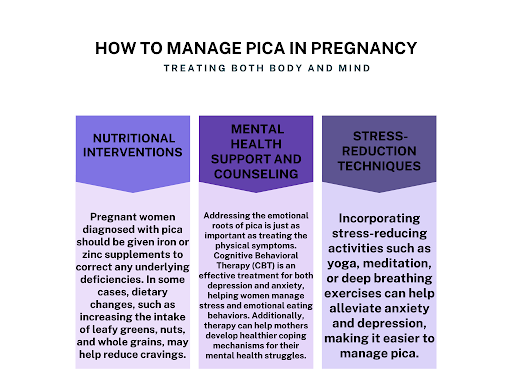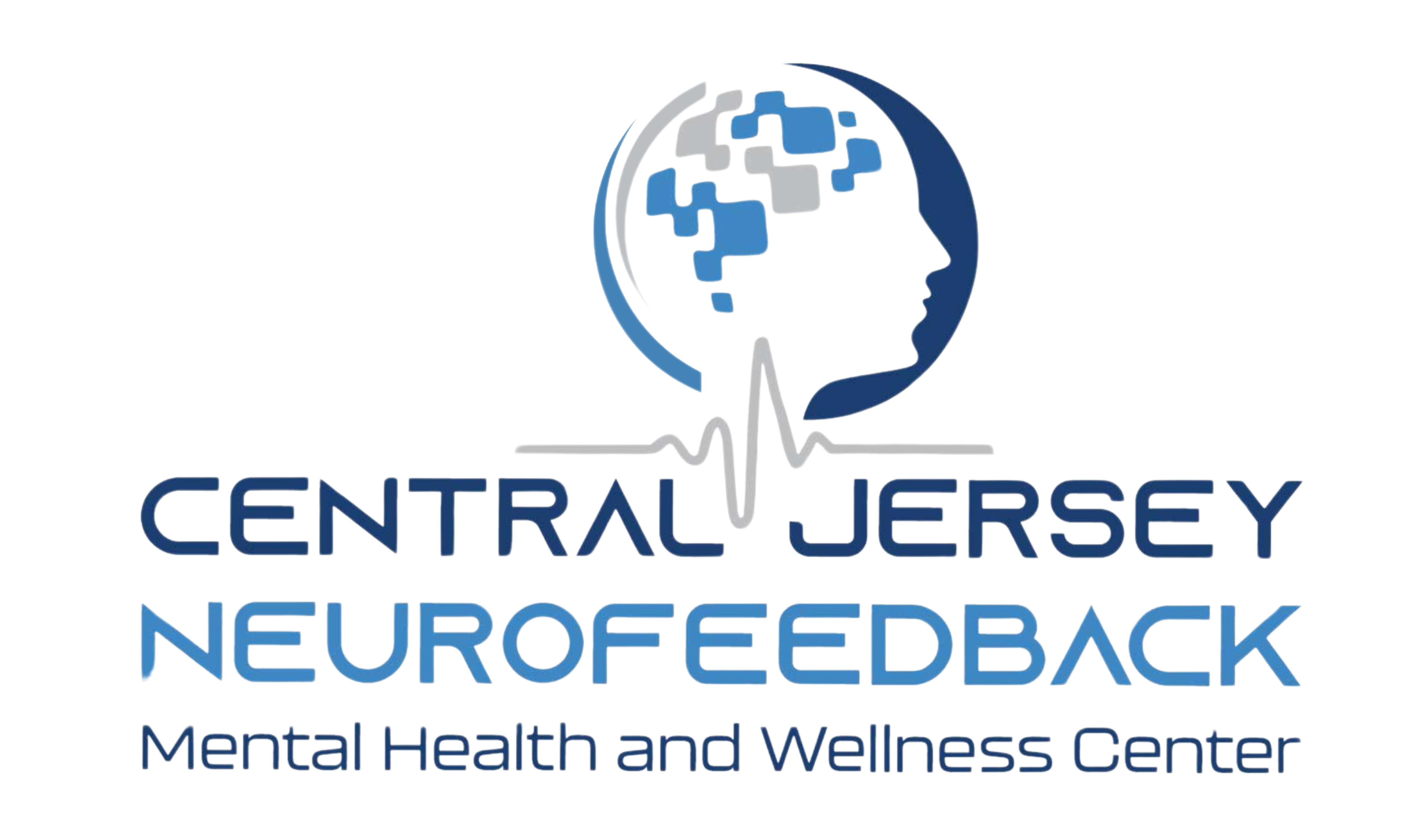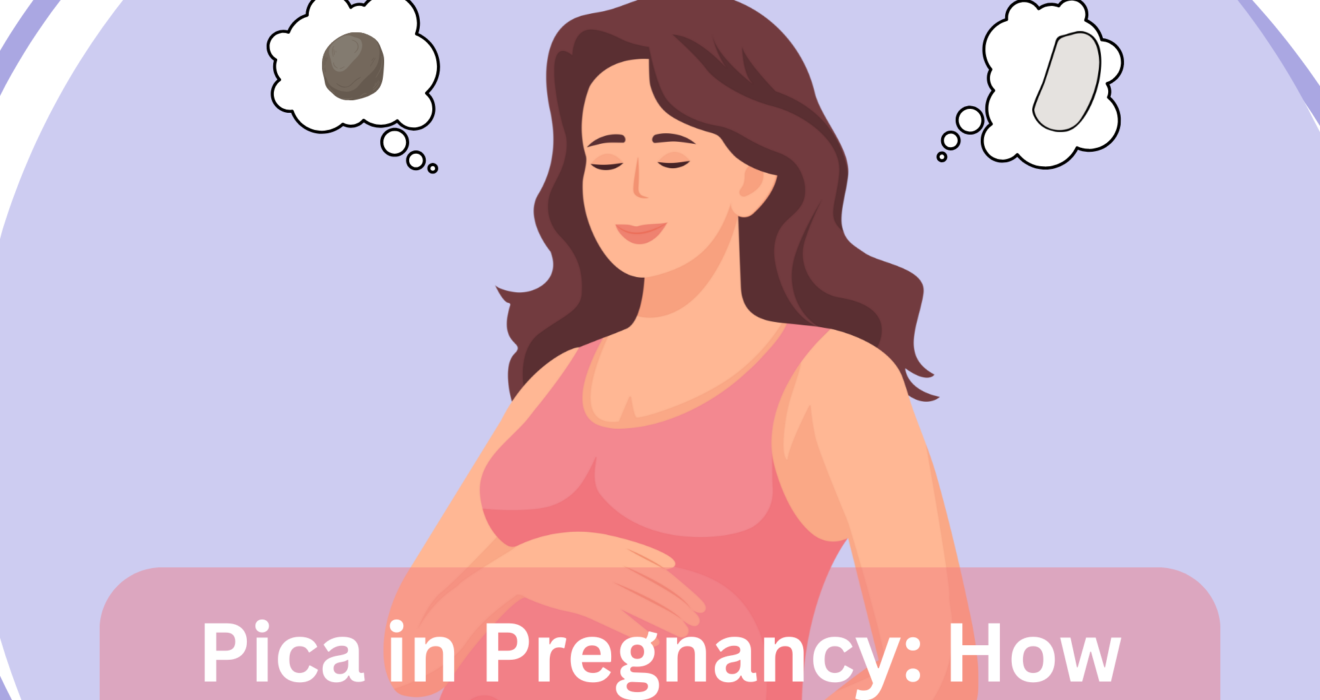PICA in Pregnancy: How Mental Health and Prenatal Depression Play a Role
PICA is a condition that may occur during pregnancy in which the woman has a desire to eat non-food items such soil, paper, or dirt. PICA stands out because of the possible health implications it poses to both the mother and the developing baby, even though unusual cravings are frequently considered an indicator of pregnancy. In particular, PICA is linked to further mental health challenges, especially anxiety and sadness during pregnancy. PICA, its connection to mental health, and approaches for managing it during pregnancy will all be covered in this article.
A Historical Perspective on Pica: From Superstition to Science
The history of PICA dates back to former times when the utilization of non-food materials was usually connected with unfounded beliefs and cultural traditions. For centuries, it was believed that cravings for dirt or clay were evidence of religious or divine action, mainly among pregnant women. Over time, medical investigation disclosed that PICA is connected to nutritional shortages and, more lately, it is powerfully bound to mental health.
Pica and Mental Health: Understanding the Connection
Pica is not only a physical condition, but also a psychological one. Pregnant women who suffer from PICA are frequently also dealing with mental health problems, such as prenatal depression and anxiety. The mental condition of an expecting mother plays a fundamental part in her eating routines, and this is mainly accurate in patients of pica.
The Impact of Prenatal Depression
Prenatal depression refers to the inner and mental problems many women face during pregnancy. Hormonal differences, the stress of about-to-happen parenthood, and individual or economic fear can lead to emotions of sadness, exhaustion, and a feeling of despair. Depression during pregnancy frequently displays unhealthy behaviors, one of which can be pica.
In women encountering prenatal depression, pica can work as a way to divert from inner pain temporarily. However, enjoying these urges can lead to damaging physical and psychological outcomes, strengthening the cycle of mental health problems.
Anxiety and PICA Cravings
Pregnancy-linked anxiety is another mental health element that can contribute to the evolution of PICA. For some women, anxiety about the health of the baby, change in the size of their body, or childbirth itself can result in uncommon urges. The consumption of non-food items may act as management for this enormous anxiety, regardless of the risks it presents.
Causes of PICA During Pregnancy: A Mental and Physical Health Perspective
While PICA is frequently linked with nutritional shortages such as iron and zinc, the mental state is equally important. The origin of PICA can be a fusion of both physical and inner components, including:
- Nutritional Deficiencies: A short volume of crucial nutrients like iron or zinc can provoke urges for non-food items like dirt or ice.
- Depression and Anxiety: Inner unreliability during pregnancy, frequently charged by depression and anxiety, may direct these uncommon urges.
- Stress and Emotional Eating: The tension of pregnancy can guide stress-produced urges, where PICA becomes a method to control feelings of mental strain or fear.
The Risks of PICA: How It Affects Mental Health and Physical Well-Being
The consumption of non-food things during pregnancy threatens the mother and the expected child. Some of the dangers cover:
- Infections and Parasites: Eating dirt or soil can expose the mother to injurious bacteria and parasites, leading to contamination that may harm both her and the baby.
- Toxicity: Things such as paint or clay may carry poisonous materials like lead, which can create consequential health difficulties, incorporating developmental hinders in the baby.
- Worsening Mental Health: Engaging in PICA can worsen emotions of humiliation, criminality, or anxiety, guiding to a magnification of mental health situations such as depression.
Diagnosing PICA in Pregnant Women: Looking Beyond Nutritional Deficiencies
While healthcare frequently focuses on the nutritional value of PICA, it’s equally adequate to judge the mental health of pregnant women. An in-depth identification of PICA incorporates:
- Blood Tests: To check for iron, zinc, and other shortages.
- Mental Health Screening: Screening for prenatal mental health problems to recognize the inner stimulations behind the urges.
How to Manage PICA in Pregnancy: Treating Both Body and Mind

Conclusion: PICA, Mental Health, and the Importance of Early Intervention
PICA in pregnancy is a complex situation that requires both physical and mental health care. Its link to prenatal depression and anxiety should not fall to notice, as labeling the inner sources of PICA can guide to greater consequences for both the mother and the baby. By attempting to satisfy both nutritional and psychological, soon to be mothers can control their urges and keep their health safe.
FAQs About Pica, Depression, and Pregnancy
1. How is PICA linked to depression during pregnancy?
The inner suffering from prenatal depression may guide urges for non-food items as a way to divert or calm oneself. PICA can be managed for pregnant women encountering depression.
2. Can treating mental health reduce PICA cravings?
Yes, managing mental health situations such as depression and anxiety through counseling can diminish the urges linked with PICA.
3. Is PICA common in women with prenatal depression?
While PICA is infrequent, it has been more often found in women who encounter prenatal depression or anxiety.


